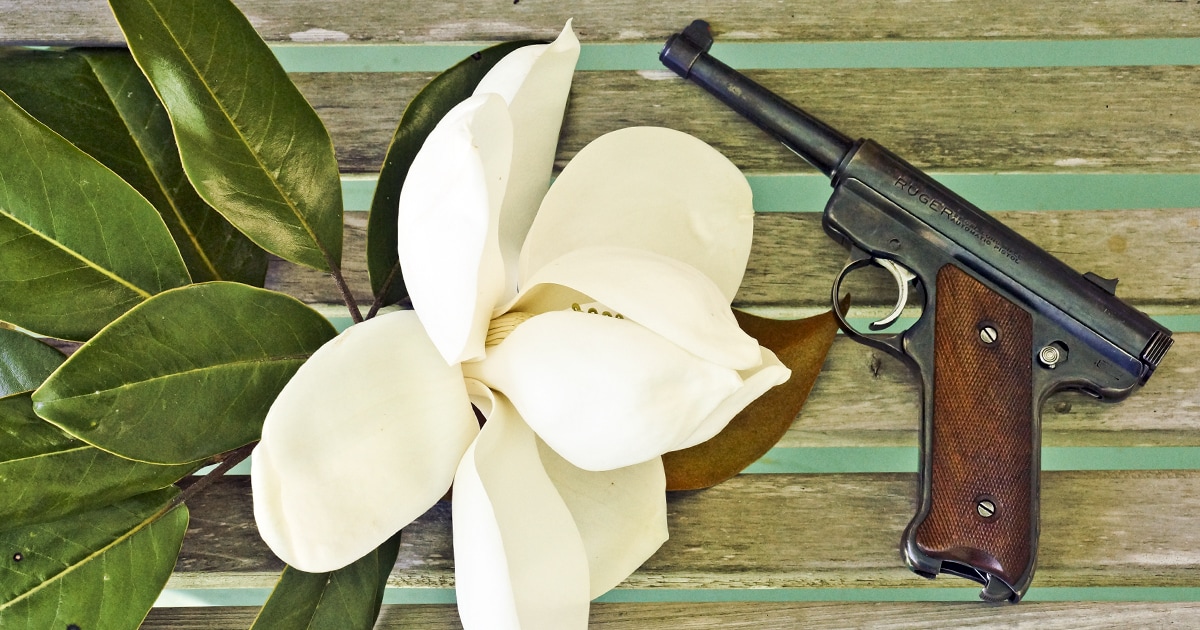A Recipe For Rejection
Award-winning author and syndicated columnist Rheta Grimsley Johnson considers the approaching extinction of "professional courtesy" in the publishing world.
You can paper your walls with rejections, toss them in the trash, or parse them for signs of hope. By “not at this time” did she mean “not this issue, but maybe next?” Did “does not meet our area of interest” mean “anybody else with more interesting interests should love it!”
If you’re a glass half-full kind of person, you can drown in such parsing. Ten years ago (really) when the new (then) Southern magazine all about guns and gardens made its debut, I was beside myself with excitement. Why, I’d been writing daily about Southern staples (then) for 30 years (really). I thought with excitement of three or four ideas to pitch, including one about a klatch of Louisiana crawfishermen in the Atchafalaya swamp suing the big oil companies for their nasty habit of leaving unnatural canals and drilling apparatus behind and ruining the fresh flow of water. Talk about a David and Goliath story, Southern in the extreme, involving nets if not guns and the largest swamp in North America, if not a garden. I was in like Flynn, though now that perfectly good expression originating with Errol Flynn has been ruined by Michael Flynn, the first of Trump’s team to be ousted. Now, I guess, the operative term will be out like Flynn. I threw in the possibility of a post-Katrina gardening story for good measure, included the prescribed Self-Addressed Stamped Envelope and a book I’d written about Louisiana and waited confidently for, at the least, a nice rejection letter for my walls. Never came. Not even an email version of No Thanks. Not even my book back. Month after month I’d get my copy of the G&G and read stories about subjects I’d covered 20 or 30 years earlier, including Alabama’s Coon Dog Cemetery, or Cornelia Bailey, the Geechee Queen of Sapelo Island, Ga. Been there, written that. I’d sit smoldering on my porch, rubbing my cur hound and drinking whiskey and listening to Hank — as posturing-ly Southern as you can get — vowing not to care but caring. Unworthy of the professional courtesy extended even to novices who throw ideas tied to a rock over a transom, I grew bitter and despondent and did what you do at such times: I cancelled my subscription.
Only trouble is, I’d been excited about the prospects of a new Southern magazine that had promise and did not deal strictly in ostentatious houses. So that first year I gave subscriptions to everyone on my gift list.
They loved it! Even hard-to-please people like my Colorado nephew and his bride, who have spent precious little time in the South, loved it. My brother who doesn’t read loved it. Men who don’t like swapping Christmas presents loved it. On a monthly basis I renewed subscriptions for friends and family, but not my own. Then one day a friend, who loves it, pointed out a story on a singer who I’d phoned her about late one night after hearing him on a television show. I re-subscribed to read about Nathaniel Rateliff and The Night Sweats and his big hit “Son of a Bitch.” Maybe it was my bad attitude, but, upon my return to the fold I sensed a shift in the magazine’s target audience. Despite the edgy Rateliff’s appearance, things had changed. The houses profiled had grown finer, the photographs glossier, the featured dogs poodles. Okay, that last thing hadn’t happened, but it still could. Someone once told me about asking an editor of the venerable Southern Living if that magazine ever got letters of complaint. The editor said “No, nobody writes letters of complaints about pecan pie recipes.” And so, when it arrives, I read the letters in the magazine about gardens and collectible guns hoping to see a complaint. So far, there’s not a sign of rejection. Comments are closed.
|
Categories
All
Archives
July 2024
|
Shoofly Magazine Partners
Our Shoofly Partners are local businesses and organizations who share our mission to enrich community life in Bay St. Louis, Waveland, Diamondhead and Pass Christian. These are limited in number to maximize visibility. Email us now to become a Shoofly Partner!




























 RSS Feed
RSS Feed























